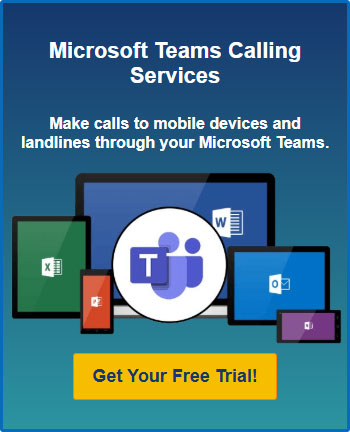Operator Connect vs. Direct Routing for Microsoft Teams
Posted on February 05, 2024 by Fusion Connect
Microsoft Teams has transformed business communication, offering a unified platform for chat, video meetings, file storage, and integration with Microsoft Office applications.
As organizations look to streamline their communications and enhance collaboration, the choice between Operator Connect and Direct Routing for integrating telephony services with Microsoft Teams is crucial.
This guide delves into the nuances of both options, helping you make an informed decision.

Connecting the Dots…
Operator Connect vs. Direct Routing for Microsoft Teams
Fusion Connect specializes in enhancing Teams with advanced voice features through both Operator Connect and Direct Routing solutions.
These offerings not only elevate your Teams experience but also align with Fusion Connect's ethos of 'Where Voice Meets Innovation', merging robust telephony with cutting-edge technology.
Understanding Operator Connect
Operator Connect simplifies the process of integrating telephony with Microsoft Teams by allowing businesses to select their preferred operator from a list of Microsoft-approved vendors directly within the Teams admin center. This integration facilitates seamless management of phone numbers and calling plans without leaving the Teams environment.
Benefits of Operator Connect
- Ease of Setup
With a few clicks, businesses can connect their telephony services to Microsoft Teams, without the need for extensive technical expertise. - Microsoft-Approved Operators
Ensures reliability and quality of service, as all operators are vetted and approved by Microsoft. - Centralized Management
Allows for the easy management of phone numbers and calling plans directly within Teams.
Deciphering Direct Routing
Direct Routing offers businesses the flexibility to connect their existing telephony infrastructure to Microsoft Teams. This option is ideal for organizations that require customization or have specific regulatory needs that are not met by Operator Connect.
Advantages of Direct Routing
- Customization
Offers more control over routing and call flow, allowing businesses to tailor the setup to their specific needs. - Global Reach
Enables organizations to use their existing telephony provider, regardless of location, ensuring global coverage. - Cost-Effectiveness
Can be more economical for businesses with existing SIP trunks or those in regions where Operator Connect providers are not available.
Choosing Between Operator Connect and Direct Routing
- Operator Connect is best suited for businesses looking for a straightforward, easy-to-manage solution without the need for existing infrastructure or specialized customizations.
- Direct Routing appeals to organizations with specific regulatory, customization, or global reach requirements, offering a more flexible approach to integrating Teams with telephony services.
Fusion Connect
Where Voice Meets Innovation
At Fusion Connect, we empower organizations to transform every conversation into a valuable digital asset, unlocking breakthroughs in growth and innovation. Whether through Operator Connect or Direct Routing, our expertise in integrating voice services with Microsoft Teams enables businesses to maximize collaboration, enhance engagement, and drive forward in the digital age.
Top Benefits for IT Decision Makers
- Seamless Integration
Enhance Microsoft Teams with robust voice capabilities, ensuring seamless communication across your organization. - Expert Guidance
Leverage Fusion Connect's expertise to choose the best integration method for your business, ensuring an optimal setup. - Innovative Solutions
Stay ahead of the curve with innovative voice and AI technology, transforming conversations into actionable insights.
Conclusion
Choosing the right telephony integration for Microsoft Teams—Operator Connect or Direct Routing—can significantly impact your organization's communication efficiency and collaboration. By understanding the unique benefits of each option, businesses can select a solution that aligns with their needs, fostering a more connected and innovative workplace.
Discussing with Fusion Connect how to make the most of your Microsoft investments, by adding Voice to Microsoft Teams and then using AI to optimize the voice data, can be a game-changer for your business. Explore how Voice for Microsoft Teams can elevate your communication strategy, driving growth and innovation in an increasingly digital world.
Let's Get in Touch!
If you have questions, let's get in touch! Our customer success team at Fusion Connect is on standby to help you find the perfect Voice or Licensing solutions for your enterprise.
Enjoy peace of mind with our unparalleled guarantees of 100% uptime (regardless of Microsoft Teams' status) and 100% customer satisfaction. You're in excellent care.
It's time to move from Telco to Techco with us.
Fusion Connect is a Microsoft Cloud Solution Provider.



